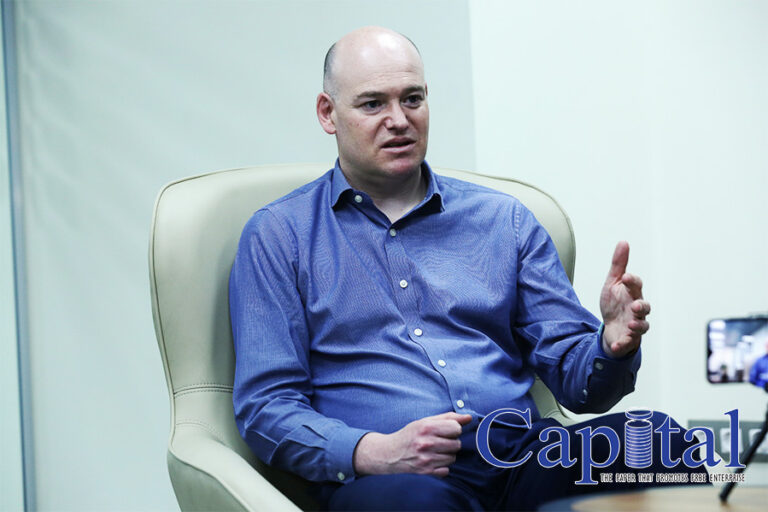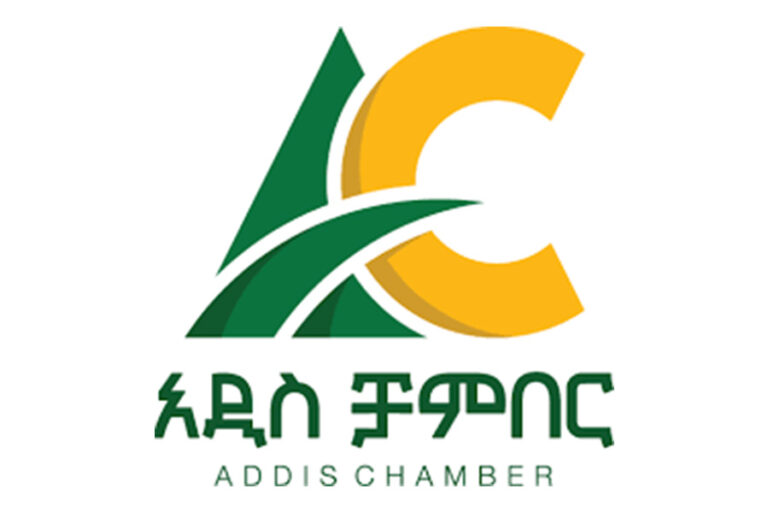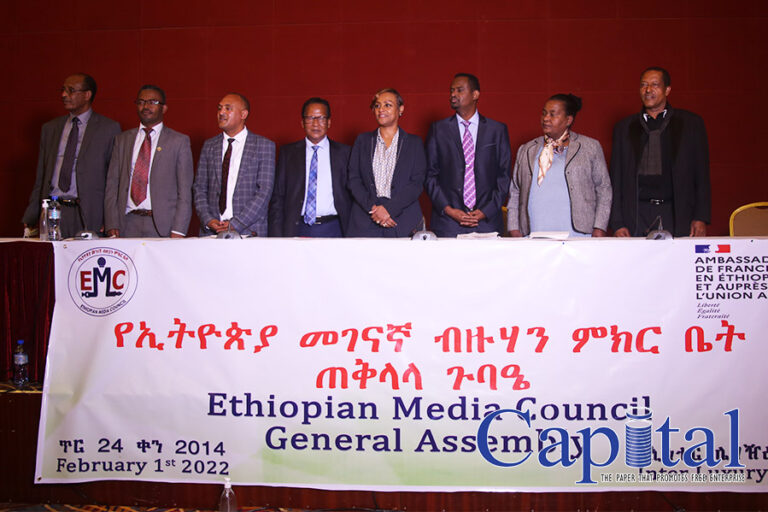As per its agreements with the Ethiopian government, Safaricom- Ethiopia gears towards its commercial launch which will come to fruition, early April.
“Our license states that, operation may start nine months from the date of the license award which is round about April this year. So starting early April we are working towards our commercial launch,” stated Matthew Harrison-Harvey Chief Regulatory and External Affairs Officer of Safaricom Ethiopia, adding, “we’re working towards our commercial launch from the 9th of April.”
Safaricom Telecommunications Ethiopia, which won an operating license in Ethiopia in May 2021, has commenced works for telecom expansions in the country. Last month the company’s first data center commenced operation and the company is working on its network rollout. And as part of is network expansion, Safaricom-Ethiopia is also working to build towers and fiber extensions.
“Beside the data center we’re in the process of rolling out our network and mobile towers. We’ve had a lot of surveys on various land and we are in talks with landowners, the federal and regional governments in regards to building our networks,” Matthew explained.
The private telecommunications entrant is working with the global telecom giant Nokia and with the Chinese global telecom giants Huawei for its infrastructure development for its operation in Ethiopia.
“We have two network venders Nokia that focus on the core Network infrastructure in Addis and the surrounding areas and Huawei which will be covering the rest of the country,” the Chief Regulatory and External Affairs Officer said.
Also regarding the infrastructure sharing with the state monopoly, Ethio telecom, Matthew explained that currently they’re in the agreement negotiation stage which will result in win-win partnerships.
“We don’t have the agreement yet, we are still on the negotiation phase,” pointed out Matthew.
“Beside infrastructure, there is also a negotiation to enable Safari com Customers and Ethio telecom customers to call each other. So we’re in the process of negotiating the agreement to make it happen,” added Matthew.
Safaricom has also leased a building to house its headquarters in Bole sub city around, Wello Sefer in Addis Ababa.
The firm is also open to rolling out M-Pesa when government gives it the green light to operate in financial services
“So currently we’re waiting on the government since the mobile financial services were not part of the telecoms license tender. The Prime Minister, I think it was in May 2021, essentially said that they would look to open up the mobile financial services sector to foreign operators within 12 months. So we’re waiting for the government to confirm that and then once they have done so, we will apply for that license,” said Matthew showing their desire to introduce the renowned fin tech platform, which has widely been used Kenya, enabling financial inclusion even in the remotest of areas.
Safaricom Ethiopia which was formed by the amalgamation of Safaricom, Sumitomo Corporation, CDC Group and Vodacom secured operational license from the government to officially do business in Ethiopia as a second telecom company after the state owned Ethio Telecom. To get the license it had to pay USD 850 million to the government and promised to invest up to USD 8.5 billion in the coming decade. He added the company is investing around USD 300 million into the country in 2022.
Safaricom to commence commercial operations in April
Ethio-telecom looks past Deloitte’s 80 billion birr asset valuation
Ethio Telecom rejects the Investment Teaser ‘Project Nigat’ Partial Privatization of Ethio Telecom by Deloitte Consulting Limited released on 15 June 2021, which showed the initial asset valuation of Ethio telecom to be about 80 billion birr.
“Ethio Telecom’s asset is not just 80 billion birr,” said Firehiwot Tamru, CEO of Ethio telecom whilst speaking about the six month performance of Ethio telecom on January 31, 2022 at Hyatt Regency hotel, as she explained that it is information given by experts and officials that have limited information about the firm.
The document which was prepared by Deloitte Consulting Limited contained selected information regarding a potential investment opportunity in respect to the proposed sale of Ethio Telecom, solely for the informational use of the potential buyer. The company was hired by the Ministry of Finance to consult on the partial privatization of Ethio Telecom after the government decided to sell 40 percent of Ethio Telecom stake to interested international buyers on the way to privatization besides opening up the sector for two more players.
The Investment Teaser ‘Project Nigat’ – Partial Privatization of Ethio Telecom of Deloitte Consulting Limited showed that the valuation of the most profitable public enterprise to be about 80 billion birr.
The investment teaser released in association with MoF’s announcement for expression of interest (EOI) for the 40 percent share acquisition of Ethio Telecom on June disclosed that the telecom monopoly had a total equity and liabilities of over 79.8 billion birr.
It is to be recalled that Ethio Telecom had hired KPMG East Africa, for asset valuation of the enterprise, to conduct its business valuation. “Soon we will release our report to the public” said the CEO. “It is a company which makes about 80 billion birr revenue annually, even if our infrastructures are old the company is worth more than 80 billion birr.”
Experts in telecom sector explained that matching of the two consulting firms’ valuation may indicate the common value.
In the first half of the budget year Ethio telecom has generated a total of 28 billion birr revenue which is 86 percent of the target. This entails a 6.7 percent increment from the previous year similar period. The telecommunications firm has also generated 74.8 million dollar from international business scoring 89.3 percent of its target.
“Given the current challenging environment in our country, this achievement can be considered as remarkable,” said the CEO. The main factor for Ethio Telecom’s under-performance, is the continuing civil war in the Tigray region. Apart from anything else, that means the company has 3,473 base stations out of operation, “resulting in a revenue loss of 3.67 billion birr,” the CEO said.
In the budget year, the telecom operator has offered 23 new and 19 revamped local and international products. In addition to expanding the revenue stream the company has devised cost optimization strategy and managed to save over 1.2 billion birr
“The restoration in those areas where recovery was possible cost us 328.9 million birr, but there are still many woredas [districts] remaining including Tigray region where we cannot provide our services and nor can the conditions and status of our telecom infrastructures be known,” explained the CEO.
The company announced that it has reached 60.8 million users, which is 100% of the expected target and an increase of 20% compared to the same period in 2021. Mobile voice subscribers have reached 58.7 million, Internet subscribers 23.8 million, fixed services have recorded 923,000 subscribers and there are 443,000 fixed broadband subscribers. This represents a telecom density of 58.5%.
Ethio Telecom is currently engaged in various network expansion and telecom infrastructure capacity enhancement projects. The rollout of 4G/LTE has been completed in 136 cities. Telebirr’s integration with the banking system is also complete. Ethiopians can already transfer money from eleven banks to their Telebirr account. The reverse process is possible with eight banks.
Service outages due to the security, infrastructure and property damage due to security, land acquisition delay, in appropriate compensation request and account suspension, commercial power acquisition delay and interruption, fiber and copper cable cut and vandalism, telecom fraud, are said to be challenges through the first half year.
Addis chamber embarks on massive restructuring
The Addis Ababa Chamber of Commerce and Sectoral Association (Addis Chamber), the oldest private sector representative in Ethiopia, embarks massive reforms on the aim to boost its support for the private sector.
The chamber announced that the reform includes changes in the leadership.
On the statement the city chamber sent to Capital a couple weeks ago shows that it has embarked on a holistic reform that shall be take place in the coming few months.
Addis Chamber said that in the reform process, it will strengthen cooperation with the national chamber, Ethiopian Chamber of Commerce and Sectoral Association, regional and city private sector representatives.
“In general we are working to change the internal operation of the chamber for the interest of members,” it says, adding “the reform has strongly incorporated the Addis Chamber goodwill ambassadors to realize the required change.”
It added that under the public private partnership principle it is strengthening its relation with the Addis Ababa City Administration in different economic areas.
According to the new reform process, the required support for the diaspora, who are interested to invest to the country, shall be provided at the place they reside in collaboration with peer partners in abroad. Currently, the chamber has a desk at its office to provide relevant information and consultation for those who come back to their country to do business.
Addis Chamber is also crafting the adequate process to establish a satellite TV and FM radio station to promote the country’s potential on trade and investment, and private sector activity. “The station will have international standards and its content will promote export commodities and create linkage with international partners and buyers,” the statement read.
The city chamber said that on the aim to accelerate the private sector as an economic engine of the country it will consult with the national, regional and city chambers.
It called its senior and support staffs besides other partners to work in cooperation to realize the greatest outcome from the reform.
Recently, Addis Chamber Board, chaired by Mesenbet Shenkute, has accepted the resignation of Getachew Regassa, the long serving Secretary General of the chamber.
The chamber office is now led by Shibeshi Bettemariam, Deputy Secretary General, as acting head.
Sources said that the reform process is aggressively put in place since the resignation of Getachew, who led the day to day activity of the chamber for over a decade.
According to sources the reform work shall be finalized before the end of the current budget year.
Ethiopia Media Council held its annual assembly
The media-regulatory independent civil society organization, Ethiopia Media Council (EMC) held its general assembly in Addis Ababa, Ethiopia on February 1, 2022.
The Council has 46 members, including those in the capital Addis Ababa and in regions across Ethiopia. In addition, 13 new members have applied to become members of the Council. The members include those who own TV and radio stations, 7 own radio stations only, while 18 members are engaged in print journalism.
Addis Ababa and five regions capacity building 100,000 Euro fund is obtained from the French Embassy in Addis Addis Ababa, according to Amare Aregawi, head of EMC. He stated that 219 journalists have also got training in relation to the coverage of the general election of Ethiopia. Two members of the Council have also travelled to South Africa as part of experience sharing tour.
In his report, Amare stated the activities the Council saying that it has implemented numerous activities including calling on the relevant authorities to release some journalists arrested under the state of emergency, among others. It is stated that the Council has not been able to hold its general assembly last year because of the outbreak of COVID-19, which also led some media in Ethiopia to go bankrupt.
In addition, the United Nations Education, Science and Culture Organization (UNESCO) has also been supporting the formation and activities of the Council since its inception, according to the report presented by Amare. The total asset of the Council which was established in 2019, is now estimated to be around 3.5 million Birr, according to the financial audit report presented.






